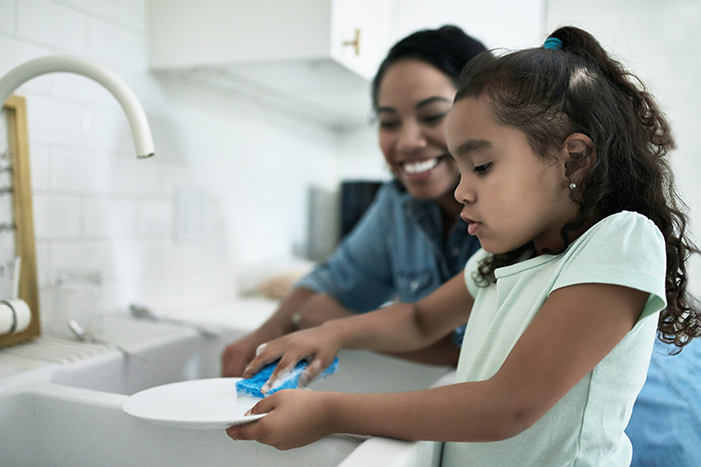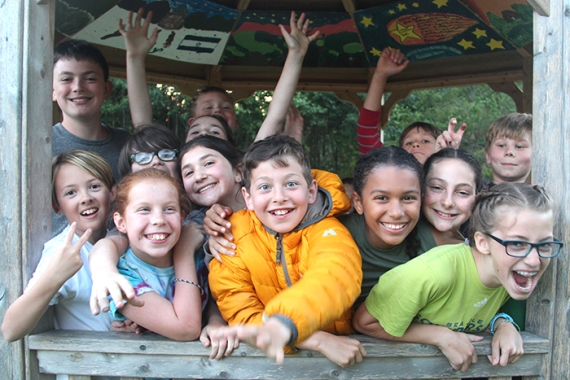
Teaching our kids to assume responsibilities around the house can be challenging. It often seems so much easier to do it ourselves – after all, it’ll be done faster and correctly. But when we do, we pay a high price. We become overloaded, stressed, and tense. Meanwhile, our kids are deprived of a valuable learning opportunity.
Judaism places a high premium on the importance of community and the need to pitch in and help one another. As it states in the Talmud, “All Israel is responsible for one another.” That’s how our Jewish community survives and thrives. Our homes are micro-communities; all family members need to be responsible for each other for us to live in peace.
But that’s often easier said than done.
Our job as parents can be made easier by asking ourselves these four questions when giving our children responsibilities:
1. “Does it help my child feel needed?”
If we invite them to help us with real chores – even when it may take a lot longer than simply doing them ourselves and even if the end result may not be perfect – they will be more likely to pitch in. It’s human nature, we all want to feel needed. A bed may be rumpled or clothes not perfectly folded, but does that really matter? What matters is that these chores needed to be done and our child pitched in and did them.
2. “Does it help my child feel appreciated?”
Another aspect of human nature is that we all want to feel appreciated, including kids. We don't have to go overboard and make a huge deal out of it when they help out – after all, it’s be expected of them and doesn't make them superheroes or worthy of lavish praise – but a simple, matter-of-fact statement like “I really appreciated your help,” or “Thanks, that was a big help” will suffice. As kids assume more responsibility, this can coincide with gaining more privileges, yet another way we show our appreciation.
3. “Does it help my child feel capable?”
It’s important for kids to believe that they can accomplish things on their own. Think of how proud they are when they finally get the knack of tying their shoes, riding a bike for the first time, or when they get their driver’s license.
Handling challenges builds resilience in kids. The trick is to give our children household responsibilities that make them feel capable when they rise to the challenge. We also want to be sure they are indeed capable of the task at hand: Can they actually physically manage to operate a vacuum cleaner, feed and walk the dog, or put out the trash/recycling containers?
4. “Does it help my child feel like they are part of the team?”
Most of the time, when we know others are depending on us, we step up and do what needs to be done. We’re more likely to accept responsibility when we feel our efforts mean something to other people. Families are like teams; they do best when everyone has a valued role. When one family member sweeps and the other holds the dustpan, or when one family member clears the table, someone else rinses the dishes, and a third loads the dishwasher, that's teamwork! Once in a while, celebrating with a fun activity for the family after everyone pitches in can get the message across.
Understanding what is appropriate for our children’s ages and skill levels and then giving them ample time to practice by doing the chores on a regular basis is important for teaching responsibility. To successfully teach our children responsibility, we need to ensure that they feel needed, appreciated, capable, and part of the team.



